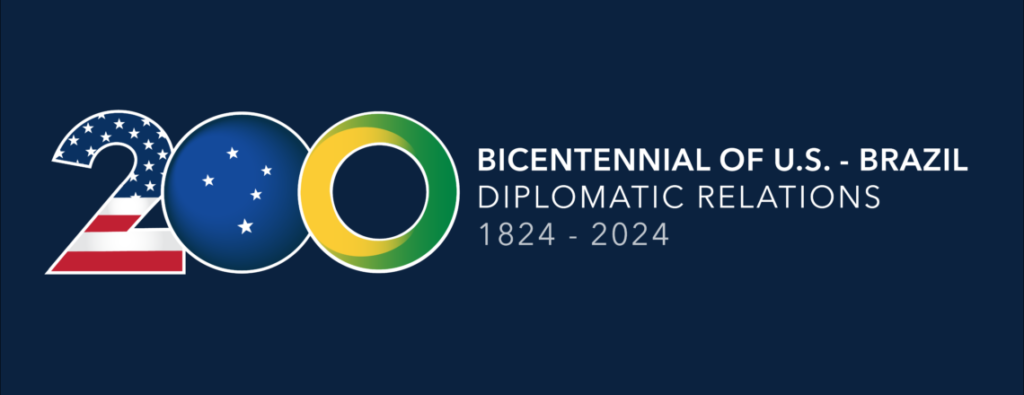São Paulo, 27 May 2024(TDI): The United States and Brazil celebrated bicentennial diplomatic relations on Sunday, 26 May.
On this date in 1824, United States President James Monroe welcomed the Brazilian charge d’affair in Washington, signaling the beginning of extensive political, economic, and cultural ties, a statement issued by the State Department.
To celebrate this event, Brazil’s Foreign Trade Secretariat of the Ministry of Development, Industry, Commerce and Service and the American Chambers of Commerce signed a Memorandum of Understanding in Sao Paulo to bolster bilateral trade and investment between the two countries.
Brazil Foreign Trade Minister, Tatiana Prazer said that the US pretended our primary partners when we consider our Trade in goods, services, and investment. He elaborated that the United States is also the primary destination for the export of Brazilian manufactured products and the main source of input for our Industry.
Brazil and the United States are the largest democracies in the Americas. Both nations have dynamic and diversified economies and share common values and interests.
Their populations are ethnically and culturally diverse. The bilateral relationship is comprehensive and institutionalized, based on a solid history of partnership, according to the State Department.
US-Brazil bilateral trade
In 2023, the bilateral trade between the two states exceeded $ 75 billion. The United States is Brazil’s second-largest exporter after China and the third-largest partner where Brazil’s goods are imported, making 15.8% of Brazil’s imports.
According to the Brazilian Central Bank, in 2023 Brazil received a whopping $10 billion direct investment from the US, with a total stock of 91.9 Billion invested over the last 10 years. By 2022, the total investment of the United States has reached $229 billion, according to statistics provided by the Brazilian Central Bank.
Also read: US Advisor met Brazilian official
History of Diplomatic Relations
After the recognition of Brazil’s independence, both countries established bilateral relations. During World War 2, forces of both countries joined together as allies and fought side by side against the Italian campaign.
Brazil and the United States engaged multiple times on topics such as the defense of democracy, the fight against climate change, the promotion of human rights, the integration of value chains, trade facilitation, science, technology, and innovation, and the strengthening of cooperation in the fields of the energy transition, space, education, and culture.
Brazil signed different military assistance agreements with the United States, supplying strategic minerals in exchange for training and equipping its Armed Forces.
The author is a seasoned content writer and a vital contributor to The Diplomatic Insight Magazine.
- This author does not have any more posts.















